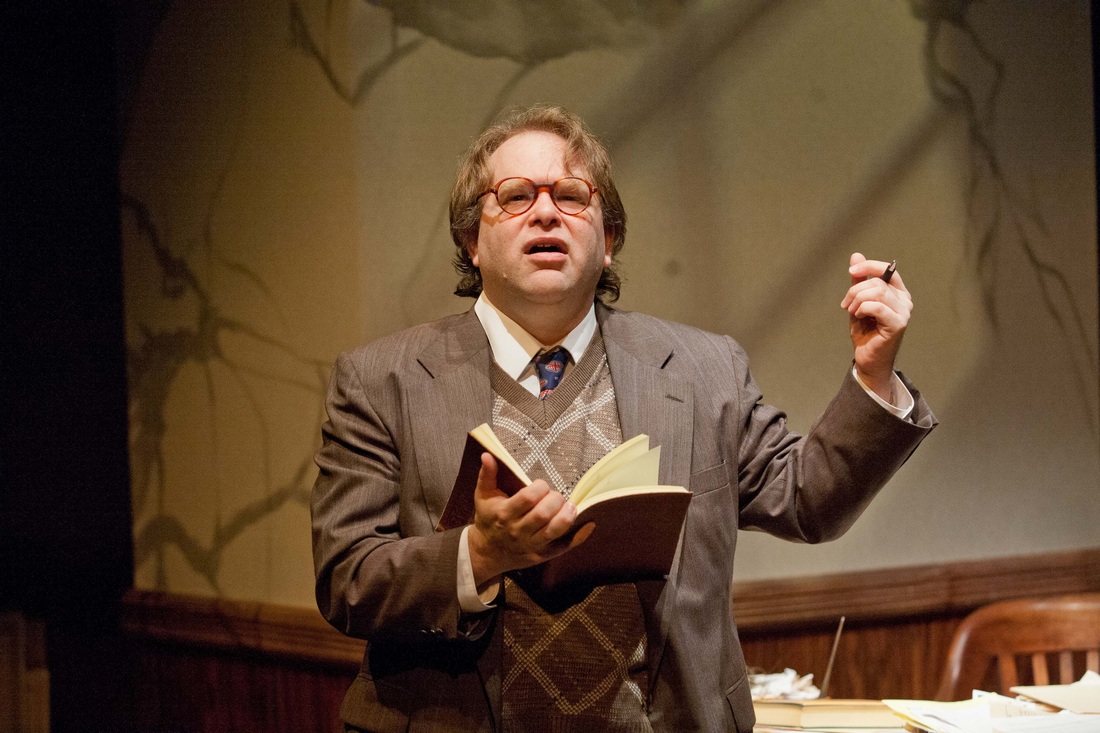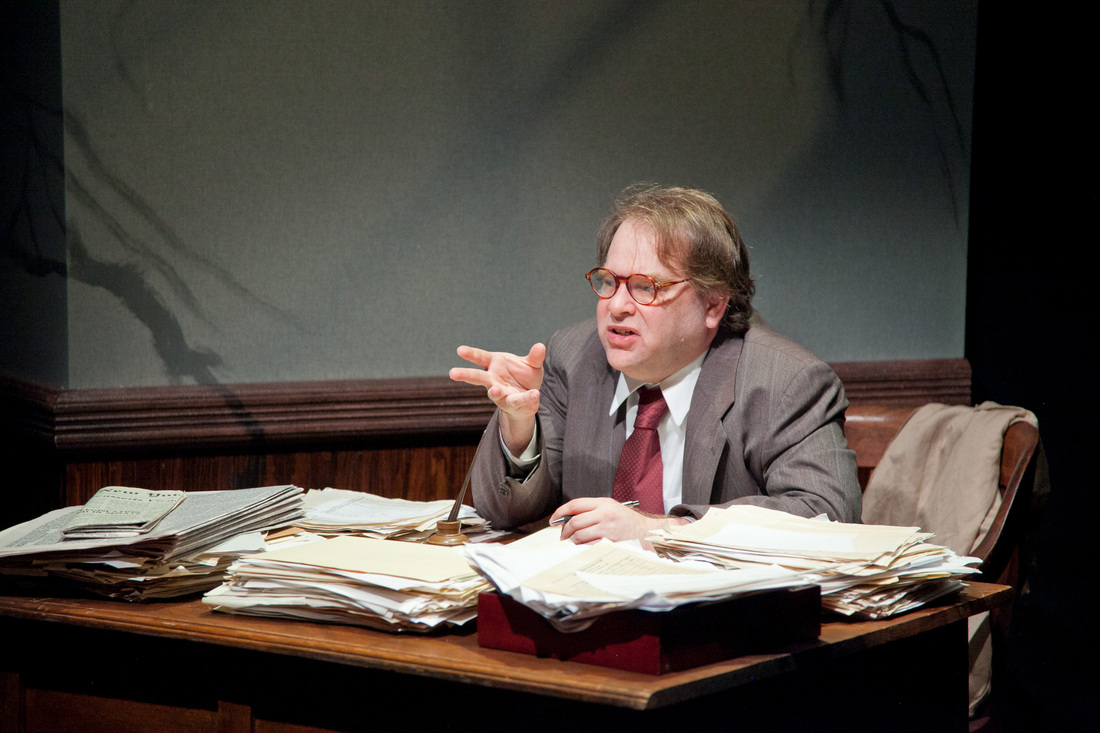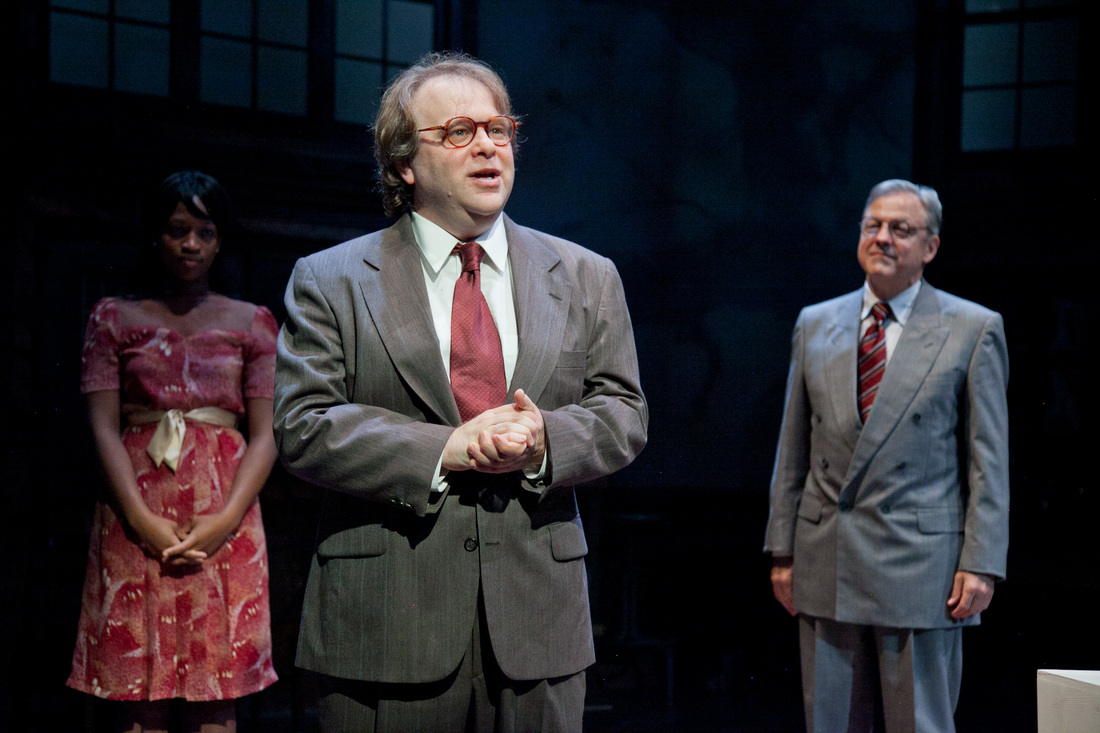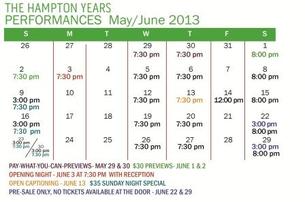|
JAQUELINE LAWTON: To begin, why did you decide to get into theater? Was there someone or a particular show that inspired you? SASHA OLINICK: When I was nine years old, my parents took me and to see a production of WAITING FOR GODOT. We hadn’t yet covered absurdism or alienation in fourth grade, so clearly a lot of it went over my head. But I was mesmerized but what was happening on stage, so transfixed in fact that I stood up for the whole second act, completely unaware that I was on my feet. Fortunately I was a pretty short kid and didn’t block anyone’s view. I did some acting in high school and with the community theater in my hometown but opportunities were pretty limited. By the time I got to college I’d put the idea of being an actor on the back burner, but I was fortunate to attend Brown University when Paula Vogel was on the faculty, and I saw a professional production of THE BALTIMORE WALTZ that blew my mind. A semester later, a student director had the chutzpah to direct the play on campus- I wasn’t really part of the theater community at Brown at this point and had no clue that this guy had more or less alienated most of the actors on campus. So I showed up to audition with just a handful of other people and got the role of The Third Man. I’d say it was playing that role that really got me hooked. JL: Set in Hampton, Virginia in the 1940s, THE HAMPTON YEARS examines the impact of World War II on Jewish Immigrants living in the United States and their role in shaping the lives and careers of African American students in the segregated south. This play investigates the various ways in which racism and bigotry negatively impact the arts academia and military. Where do you feel we are in terms of race relations in the U.S.? SO: That is such a challenging and important question! I’m trying to avoid the clichéd answer of “we’ve come a long way, but we still have a long way to go”, but I’ll probably end up with something along those lines. Given our country’s history, it is impossible to over state the significance that we have now twice elected an African American President and put an African American family in the White House. In each of the categories you mention above: the arts, academia, and the military we have seen African Americans achieve at the highest levels and ascend to the highest positions of leadership. This reality deserves recognition and celebration. Nevertheless, there’s a danger of conflating the success of individuals with the notion that we’ve somehow achieved a meaningful level of equality. I think it has somehow become easier to ignore the fact that the economic disparity between African Americans and White Americans and the disparity in academic achievement between these same two groups has been widening in most parts of the country over the past twenty years. In many ways, vibrant and powerful symbols of success, as important as they are, tend to blind us, or at least blind white America, to the reality of more disturbing trends. While we’ve removed most of the legal barriers to equality, we struggle as a country to recognize and address the fact that legal equality does not necessarily translate to equal access to resources and opportunities. JL: THE HAMPTON YEARS also celebrates and honors such extraordinary artists such as John Biggers, Elizabeth Catlett, Samella Lewis, Viktor Lowenfeld and Charles White for their bold and courageous ability to overcome these challenges and create beautiful, powerful and lasting works of art. Why do you feel this play is relevant to today’s audiences? SO: Let me answer this question just from the perspective of the character I’m playing- and in a way that I think can relate to your previous question. One of things that most interested me about the play and made me want to play Viktor Lowenfeld, was his own complicated views on race. Clearly he was progressive for his time, and he forcefully challenged Hampton’s institutional views of what its students were capable of. He encountered the unique form racism in the Jim Crow south for the first time as a highly educated intellectual, unencumbered by an American upbringing, and this allowed him to see his students through a different lens. Nevertheless, his thinking still revealed a degree of racial prejudice- prejudice that he may have construed as being positive, but a prejudice that limited his perspective. The play deals to some degree with his growing awareness and acknowledgement of this. The portrayal of Viktor demonstrates to audiences that an individual can hate racism and still be to some degree racist- that I may be simultaneously fighting to create opportunities for others while still, perhaps unconsciously, restricting the terms of those opportunities. If we really hope to dismantle racism in this country then we have to look deeply inward at our own prejudices and biases- which are often subtle, complicated and hard to discuss. I think THE HAMPTON YEARS can be a catalyst for this kind examination and conversation. JL: Which character are you playing? What, if, anything, do you have in common with this character’s passions, values, intentions or belief systems? SO: I am playing Viktor Lowenfeld. When I‘m not on the stage, (and often even when I am on the stage) I’m in the classroom, so I connect most strongly with Viktor’s passion to teach and inspire others. I have experienced that powerful moment of watching something suddenly click for a student, so I think I get how the hope for that result motivates Viktor to push John and Samella throughout the play. Although I don’t know the first thing about visual arts we talked as a cast during the rehearsal process about the many parallels to teaching and studying acting. The theoretical difference between haptic and visual artists that fascinated Viktor and led him to encourage his students to explore the physical sensation of painting and sculpting as a way of accessing and expressing the self, reminds me a lot of movement exercises we did in my conservatory training. These exercises were primarily about getting us out of our heads and into our bodies, to listen to and honor our genuine impulses. In working with acting students as a teacher, I try to emphasize that emotional truth is often more easily and effectively found through a physical or physiological process than through an intellectual one. That was a hard pill for me to swallow as a student so I try to be sensitive but insistent about it as a teacher. One of Viktor’s lines that resonates most deeply with me as a teacher comes very close to the end of the play. In the final scene, as Viktor is preparing to leave Hampton he is simultaneously urging Samella Lewis (then Sanders) to apply for a teaching position there. Samella worries that she doesn’t know enough to teach others. Viktor responds by saying “Well, beyond technique and history, there’s nothing else you can teach. You can only encourage your students and help them develop their vision.” This feels very similar to something I say to my students. I begin the semester by telling them that I can’t teach them how to be actors- that this is something they will have to teach themselves. I can give them some technical training to make their physical and vocal instrument more responsive and expressive- but my primary job is to create a challenging and safe environment where they can discover through trial and error, failure and success, the power and delight of doing the work of the actor: which stated in an overly simplistic way is to live the moment to moment action of a fictional event in an honest and compelling way. JL: What’s next for you as an actor? Where can we follow your work? SO: I’m excited to be part of the last reading for Theater J’s Locally Grown festival this season. Come check out PEOPLE OF THE BOOK by DC playwright Renee Calarco, Monday, June 24th @ 7:30 pm! 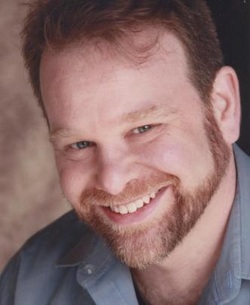 SASHA OLINICK (Viktor Lowenfeld) is pleased to be performing at Theater J for the first time this season in both The Hampton Years and Our Class. Recent Washington credits include: Charlie Cowell/Constable Locke in The Music Man at Arena Stage, Mozart in Amadeus, Will in The Book Club Play, and Freddy Miles inThe Talented Mr. Ripley, Passpartout in Around the World in 80 Days at Round House Theatre, George Washington in Chasing George Washington, at the Kennedy Center Theatre for Young Audiences, Mr. Toad in Wind In the Willows, at Imagination Stage, Murk in Savage in Limbo at MetroStage, and Guy in God’s Ear at Rep Stage. Regional credits include work with Maryland Shakespeare Festival, American Shakespeare Center, Trinity Rep, Vermont Stage and the Merry Go Round Playhouse. Mr. Olinick has an MFA from the Trinity Rep Conservatory, and teaches at Montgomery College, the National Conservatory of Dramatic Art, and with the Educational Theatre Company.
0 Comments
Your comment will be posted after it is approved.
Leave a Reply. |
My BlogI'm a playwright, dramaturg, and teaching artist. It is here where you'll find my queries and musings on life, theater and the world. My posts advocate for diversity, inclusion, and equity in the American Theatre and updates on my own work. Please enjoy!
Categories
All
Archives
June 2020
Reading List
|
